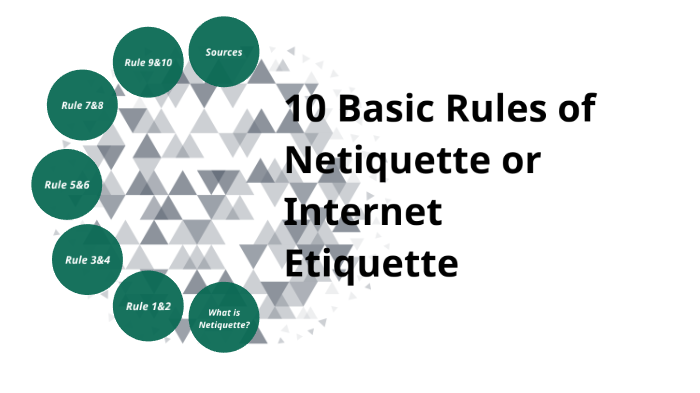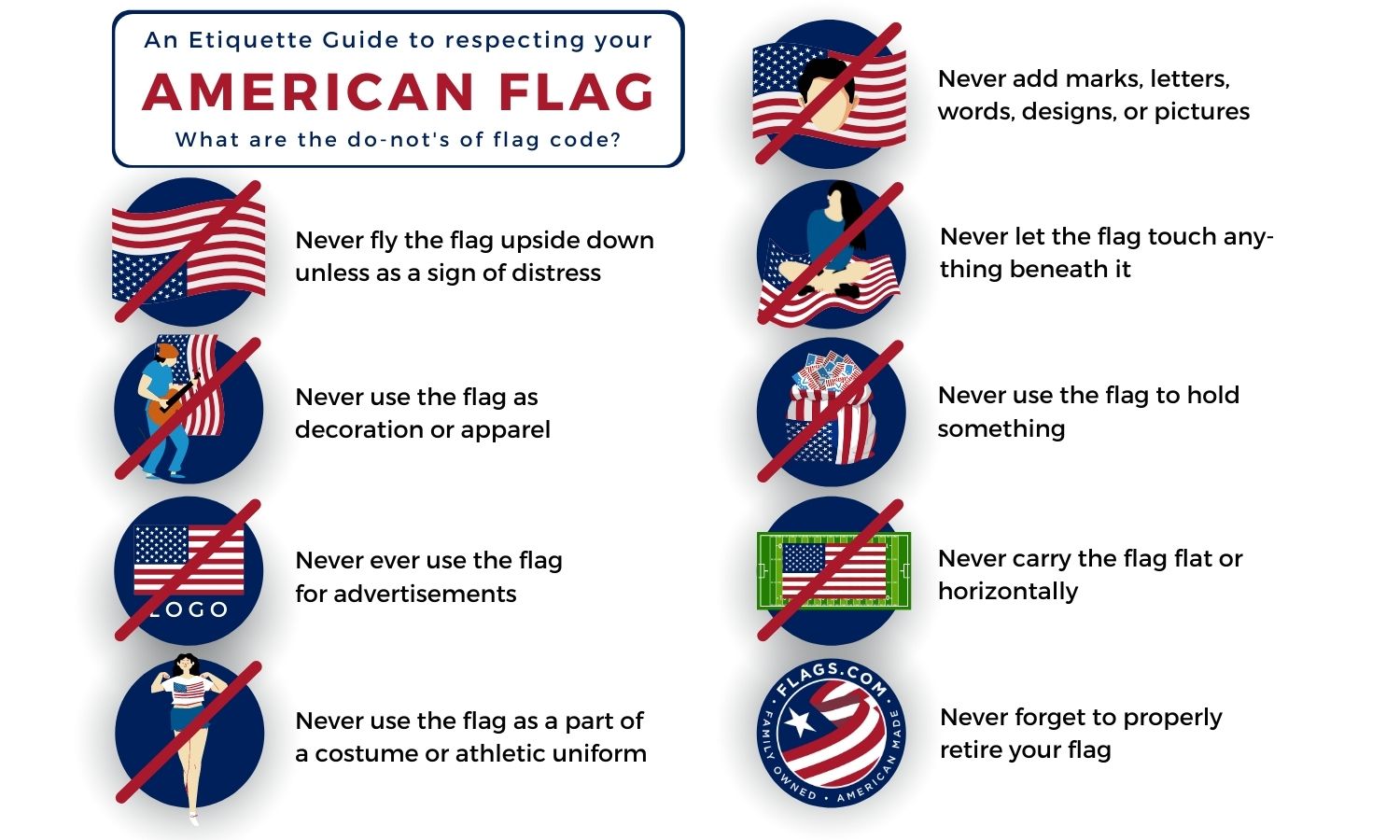- 10 golden rules of email etiquette
- What are the 7 rules of flag etiquette
- The rules of etiquette in internet communications and postings are called
Which of these rules of etiquette exists at every workplace?
Communicate in a way that’s appropriate for the specific audience of the platform you’re on. For example, your meat recipe blog subscribers might love your special chicken recipe, but if you post it on a vegan chat group, you’ll likely disgust other members sevens kraze spielen. And the caustic tone you use on the chat group with your friends is likely not appropriate for work communications.
Spreading misinformation can have wide-ranging consequences, from ruining reputations to undermining commonly accepted norms. Do your research before entering a discussion online or sharing information you find.
When communicating electronically, whether through email, instant message, discussion post, text, or some other method, practice the Golden Rule: Do unto others as you would have others do unto you. Remember, your written words are read by real people, all deserving of respectful communication. Before you press “send” or “submit,” ask yourself, “Would I be okay with this if someone else had written it?”
You expect your online experience to be safe and private, and netiquette rules require you to extend that same courtesy to others. As such, you should never record anyone, for example on a livestream or video chat, without their consent.

10 golden rules of email etiquette
Invest in Calibr.ai, which allows you to unlock an AI-powered learning experience for your employees. With Calibr LXP, you can offer a seamless eLearning experience, allowing your learners to engage with the employee training program and gain fruitful insights to apply the Company Email Usage Policies to their daily business-as-usual activities.
Avoid using personal emails for business communication, especially when sharing sensitive or confidential information Protecting sensitive information is not just about avoiding common mistakes—it’s about maintaining trust and ensuring your professional communication meets the highest standards.
Another great tip for email etiquette is to avoid following-up too often. If you’ve sent an email and the receiver is not responding, the next step should be to call, not email again. This can help you avoid delays.
When you’re reaching out to someone who doesn’t know you, especially for professional purposes, it’s always a good idea to include your full name, title, company, and contact number as part of the email signature etiquette. This helps build trust and lets them know who they’re hearing from.
It is necessary to understand that emails are not confidential. Whether it is about sharing confidential information or writing something that you don’t want to share publicly, you need to stay careful with emails.
What are the 7 rules of flag etiquette
Tip: As a general guideline, allow at least 6 to 10 feet between standard residential poles, and even more space if you’re flying oversized or commercial-grade flags. Proper spacing not only looks better — it protects your flags and ensures a more respectful presentation.
You may also see half-staff proclamations issued by the President or state governors following the passing of public officials, military service members, or in response to national tragedies. To stay updated, many flag owners sign up for email or text alerts from HalfStaff.org or follow their local government’s notices.
The Pledge of Allegiance to the Flag: “I pledge allegiance to the Flag of the United States of America, and to the Republic for which it stands, one Nation under God, indivisible, with liberty and justice for all.”, should be rendered by standing at attention facing the flag with the right hand over the heart. When not in uniform men should remove any non-religious headdress with their right hand and hold it at the left shoulder, the hand being over the heart. Persons in uniform should remain silent, face the flag, and render the military salute. Members of the Armed Forces not in uniform and veterans may render the military salute in the manner provided for persons in uniform.
Another thing to remember when celebrating on Memorial Day, 4th of July, or any other holiday is saluting the flag. It’s important to proudly salute during the raising or lowering of the flag or when it passes in parade. Americans should face the flag, stand at attention, and place their right hand over their heart. Men should remove their hats. And a heads up: You don’t need to salute small handheld flags.

Tip: As a general guideline, allow at least 6 to 10 feet between standard residential poles, and even more space if you’re flying oversized or commercial-grade flags. Proper spacing not only looks better — it protects your flags and ensures a more respectful presentation.
You may also see half-staff proclamations issued by the President or state governors following the passing of public officials, military service members, or in response to national tragedies. To stay updated, many flag owners sign up for email or text alerts from HalfStaff.org or follow their local government’s notices.
The rules of etiquette in internet communications and postings are called
Cumbersome language and repetitions only clog up chats and forums; in addition, spelling mistakes can make it more difficult to read and understand what is being said. Forwarding chain letters also has no place in respectful online communication.
If you have an in-joke to share, send it in a private message. Additionally, don’t post an obscure comment to your Facebook, a forum, or an Instagram story, as this can leave others feeling as if they are excluded from whatever it is you are talking about.
“The internet is a vast and interconnected space, and your online activities contribute to forming your digital identity and reputation. What you share online can have long-lasting effects on how others perceive you,” Lev explains.
Amy Morin, LCSW, is a psychotherapist and international bestselling author. Her books, including “13 Things Mentally Strong People Don’t Do,” have been translated into more than 40 languages. Her TEDx talk, “The Secret of Becoming Mentally Strong,” is one of the most viewed talks of all time.
If the message is something you don’t want to deal with, know that avoiding it won’t cause it to go away and may even create more stress. Don’t allow this to happen to you by responding as soon as you can.